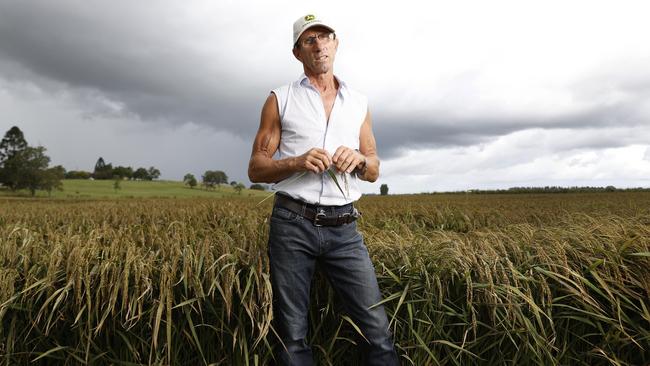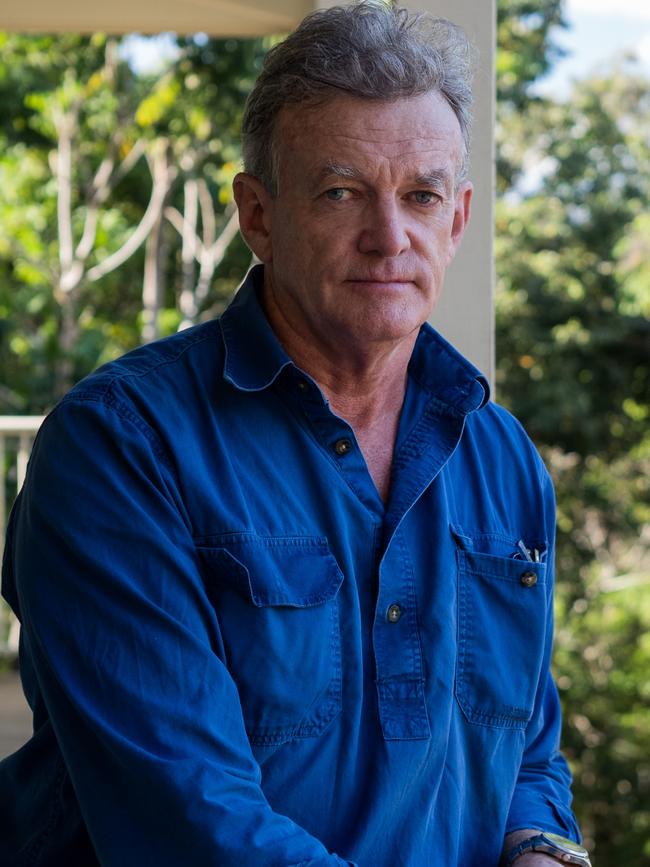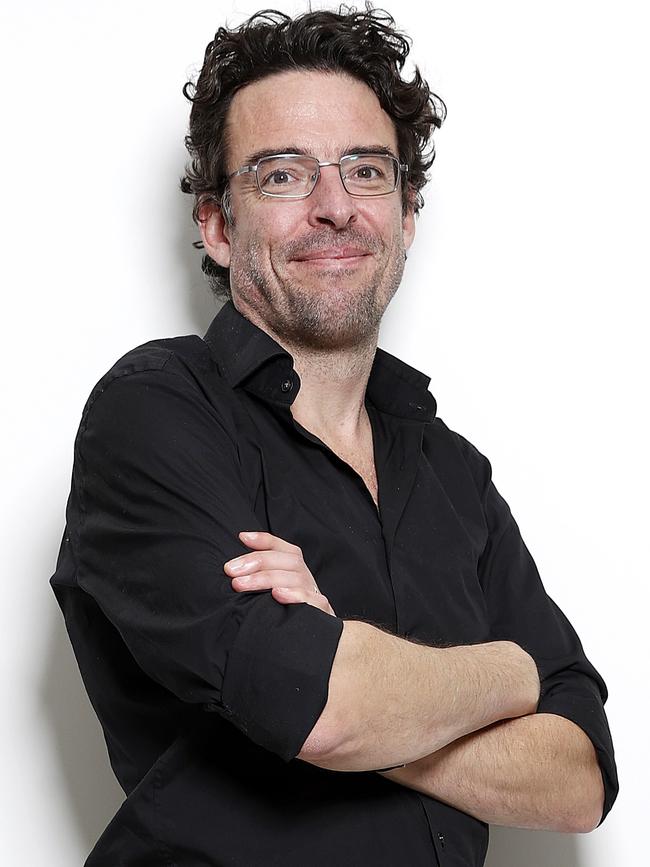Aussie voters want climate action: What could decide key seats
Cost of living and Covid-19 loom as the most important federal election issues but climate change is turning electorates on their heads. SEE HOW YOUR STATE COMPARES.
Federal Election
Don't miss out on the headlines from Federal Election. Followed categories will be added to My News.
Cost of living is neck-and-neck with Covid-19 as the most important issue to voters at the upcoming election but it is the hot button issue of climate change that is turning electorates on their heads.
A record-breaking poll of more than 15,000 Australians conducted by YouGov has revealed 107 out of the 151 lower house seats have more voters who want further action on climate than support the current target of net zero by 2050.
And the vast majority in all seats – including rural and coal-heavy electorates – either support the commitment to net zero or think the government should go further.
But in a pincer grip for both parties, voters in Labor heartland seats are far more likely to back the Coalition’s position, while voters in affluent inner city seats held by the Liberals overwhelmingly say the government should be doing more.
However it is possible that the climate wars might finally be drawing to a close, with far more voters saying action on climate is both good and good for the economy than those saying less action should be taken.
And around two-thirds of voters even said they would be prepared to wear some costs (19 per cent) or that the benefits outweighed the costs (48 per cent).
The poll was conducted in late January, before the outbreak of War in Ukraine, raised fresh concerns about energy security and prompted massive fuel hikes.
It was commissioned by the Australian Conservation Foundation.
Asked the most important issue when determining their vote, “Managing Covid-19” and “Cost of living” ranked equal first, with 21 per cent of voters selecting each, while 14 per cent of voters nominated climate change.
Of those surveyed, 70 per cent believed Australia needed to commit to at least net zero by 2050, with 41 per cent saying it was not enough. By contrast only 12 per cent said the net zero commitment was too much and 19 per cent did not know.
But it is the breakdown of sentiment that will most alarm the government, which is facing a co-ordinated challenge in its blue ribbon seats from so-called “independents” campaigning on climate.
In the Sydney seat of Wentworth, held by the Liberals’ Dave Sharma, 42 per cent say the Coalition’s commitment is “too little too late” compared to 29 per cent who support it.
In Tim Wilson’s Melbourne seat of Goldstein the gap is worse at 47 to 32 and in Treasurer Josh Frydenberg’s seat of Kooyong the gap is worse again at 48 to 30.
North Sydney’s Trent Zimmerman is faring only marginally better at 48 to 31.
But Labor faces problems on the issue too, with the poll confirming that more action on climate change is less popular in traditional working-class and multicultural Labor electorates.
More people in Gough Whitlam’s old seat of Werriwa support the government’s position than think it should do more — 33 to 32 per cent — and other electorates where more favour the existing target than doing more are a who’s who of the Labor front bench: Jason Clare’s Blaxland (31-29), Chris Bowen’s McMahon (33-29), Kristina Keneally’s Fowler (33-28) and Tony Burke’s Watson (35-28).
Away from the topsy-turvy sentiment in metropolitan Liberal and Labor seats, climate could be the make-or-break issue in a number of key regional marginals.
The electorate of Richmond, which has just been hit with the worst of the recent floods, is a
hotchpotch of traditional farming communities and green-tinged tree-hangers in hippie
hot spots such as Byron Bay.
Hence what was once a Nationals stronghold has been held by Labor’s Justine Elliott since
2004 on the back of a massive amount of Greens preferences.
There 40 per cent of the electorate say they want the government to go harder on climate
change, compared to just 33 per cent who are happy with the current target.

Farmer Adam Dawson — who just lost a quarter of his rice crop in the Lismore floods — was one of those rusted on Nationals voters who switched to the Greens about a decade ago.
He says it’s clear from his 35 years working the land that the weather is getting more
extreme and erratic and there are no longer predictable seasons he can rely on.
“It’s either very dry or very wet,” he said. “There doesn’t seem to be any in-between.”
Mr Dawson used to be able to harvest both a winter and summer crop but the weather is
now too unpredictable to be able to do this.
He says there is a growing acceptance among farmers that tackling climate change will
actually benefit farms rather than cost them.
This is supported by voters generally, with 24 per cent saying action will make the economy
stronger immediately and a further 45 per cent saying it will make the economy stronger in
the long-term even if there are short-term costs.
Surprisingly, in the coalmining stronghold of Hunter 34 per cent wanted more action — more than the 30 per cent satisfied with net zero by 2050 — and even in the Queensland coal country of Capricornia 29 per cent wanted further action, although 37 per cent supported the current position. Only 14 per cent of voters in both seats thought the target too ambitious.

Grant Howard, a Mackay-based coal miner of 40 years, said miners now understood the
industry was changing and accepted it.
“I talk to coal miners every day,” he said. Two years ago coal miners were quite hostile or
reserved. “These days coal miners more understand the timeline and don’t feel as
threatened as opposed to how they were a couple of years ago.”
Likewise 55 per cent of voters said it would create more future opportunities for young
Australians compared to just 15 per cent who said it would have a negative effect.
“People want to see legitimate climate action and many Australians want stronger climate targets for 2030,” ACF Chief Executive Officer Kelly O’Shanassy told The Daily Telegraph.
“People across Australia want climate action because they know it’s good for their health and will create future opportunities for young people.”
Pollster Campbell White said the groundbreaking methodology proved that there was widespread support across all electorates.
“In the post-Glasgow environment it is clear that Australians expect action on climate change,” he said.
“What this method does is overcome the objection that this sentiment is limited to certain electorates.”
POLICIES
Coalition
Commitment to net zero emissions by 2050
On track to meet or beat 2030 Paris target of 26-28 per cent reduction (from 2005 levels)
Technology Investment Roadmap to investment in hydrogen, long duration energy storage,
low emissions steel and aluminium production and carbon capture and storage
$20 billion of government investment over 10 years
$2 billion Climate Solutions Fund for practical emissions reduction projects, like capturing
methane from landfill and storing carbon in forests and soils
Labor
Commitment to net zero emissions by 2050
Pledge to cut emissions by 43 per cent by 2030 (from 2005 levels)
Make electric vehicles cheaper with an electric car discount and a National Electric Vehicle
Strategy
Up to $3 billion from a National Reconstruction Fund to invest in green metals, hydrogen,
and methane and waste reduction
Install 400 community batteries across the country
Cut the Australian Public Service’s emissions to net zero by 2030
DAMNED IF THEY DO, AND IF THEY DON’T
Analysis by Joe Hildebrand

The big problem for the Coalition is not just what people think about climate change but where they are thinking it.
There are huge numbers of voters in urban Liberal seats who want more action on climate change but in regional Nationals seats the sentiment is reversed, with more people favouring the existing target of net zero by 2050 than want to go further.
In other words, if it goes harder on emissions to appease the city it risks alienating the bush.
But the good news is that in both the city and the bush there is overwhelming support for reducing emissions, and even in the regions the number of voters who want more cuts also vastly outweighs the number of those who think the government has gone too far.
The polling also confirms what many in the ALP have been warning about for years, namely that traditional blue collar Labor voters are nowhere near as energised about climate change as affluent inner-city voters.
But again, the vast majority are still in favour of some action, and more want greater action than want less.
Having said all that, climate change still ranks below Covid, cost of living, health and the economy in voters’ minds, meaning that campaigning on it as a single issue is unlikely to sway votes.
Instead it is the linking of climate action with economic and health benefits that will get voters’ attention. It may also be that the War in Ukraine has sharpened people’s focus on the here and now rather than future concerns.
Even so, the fact that nowhere in Australia do even one in five people think Australia has moved too far on climate change – the highest objection rate is 18 per cent – shows taking action is now a mainstream consensus position.
The climate wars are over.



